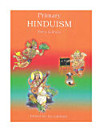Buddhist and Christian Responses to the Kowtow Problem in China
Mar 2015 · Bloomsbury Publishing
5.0star
1 reviewreport
Ebook
208
Pages
reportRatings and reviews aren’t verified Learn More
About this ebook
The most common Buddhist practice in Asia is bowing, yet Buddhist and Christian Responses to the Kowtow Problem is the first study of Buddhist obeisance in China. In Confucian ritual, everyone is supposed to kowtow, or bow, to the Chinese emperor. But Buddhists claimed exemption from bowing to any layperson, even to their own parents or the emperor. This tension erupted in an imperial debate in 662.
This study first asks how and why Buddhists should bow (to the Buddha, and to monks), and then explores the arguments over their refusing to bow to the emperor. These arguments take us into the core ideas of Buddhism and imperial power: How can one achieve nirvana by bowing? What is a Buddha image? Who is it that bows? Is there any ritual that can exempt a subject of the emperor? What are the limits of the state's power over human bodies? Centuries later, Christians had a new set of problems with bowing in China, to the emperor and to “idols.” Buddhist and Christian Responses to the Kowtow problem compares these cases of refusing to bow, discusses modern theories of obeisance, and finally moves to examine some contemporary analogies such as refusing to salute the American flag.
Contributing greatly to the study of the body and power, ritual, religion and material culture, this volume is of interest to scholars and students of religious studies, Buddhism, Chinese history and material culture.
This study first asks how and why Buddhists should bow (to the Buddha, and to monks), and then explores the arguments over their refusing to bow to the emperor. These arguments take us into the core ideas of Buddhism and imperial power: How can one achieve nirvana by bowing? What is a Buddha image? Who is it that bows? Is there any ritual that can exempt a subject of the emperor? What are the limits of the state's power over human bodies? Centuries later, Christians had a new set of problems with bowing in China, to the emperor and to “idols.” Buddhist and Christian Responses to the Kowtow problem compares these cases of refusing to bow, discusses modern theories of obeisance, and finally moves to examine some contemporary analogies such as refusing to salute the American flag.
Contributing greatly to the study of the body and power, ritual, religion and material culture, this volume is of interest to scholars and students of religious studies, Buddhism, Chinese history and material culture.
Ratings and reviews
5.0
1 review
About the author
Eric Reinders is Associate Professor of East Asian Religions at Emory University, USA. He received his Ph.D. from the University of California, Santa Barbara. His first book was Borrowed Gods and Foreign Bodies: Christian Missionaries Imagine Chinese Religion (2004), and he co-authored Buddhism and Iconoclasm in East Asia: A History (2013, Bloomsbury Academic).
Rate this ebook
Tell us what you think.
Reading information
Smartphones and tablets
Install the Google Play Books app for Android and iPad/iPhone. It syncs automatically with your account and allows you to read online or offline wherever you are.
Laptops and computers
You can listen to audiobooks purchased on Google Play using your computer's web browser.
eReaders and other devices
To read on e-ink devices like Kobo eReaders, you'll need to download a file and transfer it to your device. Follow the detailed Help Center instructions to transfer the files to supported eReaders.








